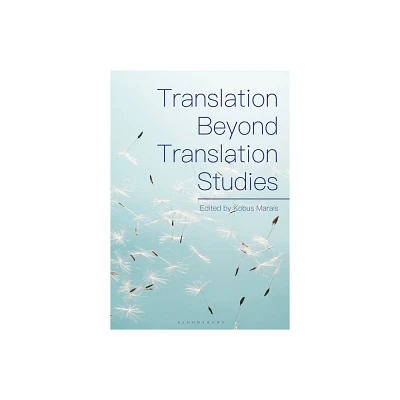Home
Bourdieu Translation Studies: The Socio-cultural Dynamics of Shakespeare Egypt
Loading Inventory...
Barnes and Noble
Bourdieu Translation Studies: The Socio-cultural Dynamics of Shakespeare Egypt
Current price: $63.99


Barnes and Noble
Bourdieu Translation Studies: The Socio-cultural Dynamics of Shakespeare Egypt
Current price: $63.99
Loading Inventory...
Size: Paperback
*Product Information may vary - to confirm product availability, pricing, and additional information please contact Barnes and Noble
This book explores the implications of Pierre Bourdieu’s sociology of cultural production for the study of translation as a socio-cultural activity. Bourdieu’s work has continued to inspire research on translation in the last few years, though without a detailed, large-scale investigation that tests the viability of his conceptual tools and methodological assumptions. With focus on the Arabic translations of Shakespeare’s tragedies in Egypt, this book offers a detailed analysis of the theory of ‘fields of cultural production’ with the purpose of providing a fresh perspective on the genesis and development of drama translation in Arabic.
The different cases of the Arabic translations of
Hamlet
,
Macbeth
King Lear
and
Othello
lend themselves to sociological analysis, due to the complex socio-cultural dynamics that conditioned the translation decisions made by translators, theatre directors, actors/actresses and publishers. In challenging the mainstream history of Shakespeare translation into Arabic, which is mainly premised on the linguistic proximity between source and target texts, this book attempts a ‘social history’ of the ‘Arabic Shakespeare’ which takes as its foundational assumption the fact that translation is a socially-situated phenomenon that is only fully appreciated in its socio-cultural milieu. Through a detailed discussion of the production, dissemination and consumption of the Arabic translations of Shakespeare’s tragedies,
Bourdieu in Translation Studies
marks a significant contribution to both sociology of translation and the cultural history of modern Egypt.
The different cases of the Arabic translations of
Hamlet
,
Macbeth
King Lear
and
Othello
lend themselves to sociological analysis, due to the complex socio-cultural dynamics that conditioned the translation decisions made by translators, theatre directors, actors/actresses and publishers. In challenging the mainstream history of Shakespeare translation into Arabic, which is mainly premised on the linguistic proximity between source and target texts, this book attempts a ‘social history’ of the ‘Arabic Shakespeare’ which takes as its foundational assumption the fact that translation is a socially-situated phenomenon that is only fully appreciated in its socio-cultural milieu. Through a detailed discussion of the production, dissemination and consumption of the Arabic translations of Shakespeare’s tragedies,
Bourdieu in Translation Studies
marks a significant contribution to both sociology of translation and the cultural history of modern Egypt.

















